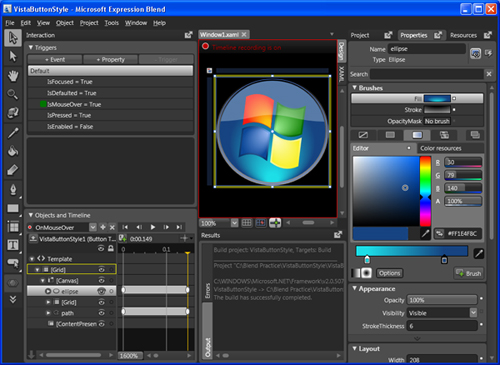


I read his Cathedral essay a decade ago and was as, if not more, critical of it then as I am now, for the same “live and live” reason. For example, one “joke” about GIMP back in the day was that it stood for “GIMP Is Not Photoshop” - poking fun at the GNU trend of left recursive acronym based naming of things, the tendency of open source projects to duplicate commercial products and add nothing original, and mixing up M and N to throw off the literalists. It has the same kind and level of tone of hostility that a critic of open source would strike by asking for examples of originality from the open source community. The part of the ethos popularized by Raymond that strikes a raw nerve is that there is something worthy of distrust in any closed source system. I’m all for people participating in open source models if that floats their boats. At the end of the day though, closed source makes monetizing my work easier. I’m a strong believer in freemium models.
Microsoft silverlight for mac purpose software#
I’ve used and use some open source software in my work. I make good money making products that tens of thousands of people use. I’m not calling them thieves or confusing hackers and crackers, but I am saying that a very negative tone in the zeal of their position and ethos reveals itself in that description. And he did say explicitly that open sourcers distrust the closed source model because it gives the closed source developer a monopoly over his code. In the last half of the podcast, there was a constant theme from Raymond: monopolies are bad. You could probably replicate the same observation with any older person who hasn’t become a computer geek.
Microsoft silverlight for mac purpose windows#
I’ve sat down with my grandfather and discovered that he doesn’t perceive the “depth” of stacked rectangular windows on the screen. In fact, it’s confusing to those not familiar with it. You can see that developers still win in prominent GUI systems and especially Linux by the rectangularization of everything on the screen. To arrive at it, you’ve got to have an artist draw it up and a developer try to build the mock up. What I’ve found is that UI aesthetic has to be a compromise between what’s beautiful and what’s possible. It is an entirely different skill set from entirely different parts of the brain. You are right about the negative correlation between aesthetics and hacking. Why the explicit contempt by Eric and open sourcers for those who don’t want to adopt their cultural norms? So what does he think of private property and why is that different from intellectual creations? I’m not arguing here for DMCA or Sonny Bono, but I am saying that we don’t have implicit distrust or contempt for people who own their homes and won’t allow us to sleep over or take bananas from the pantry. Russ, you could have challenged him on the whole monopoly thing.


 0 kommentar(er)
0 kommentar(er)
